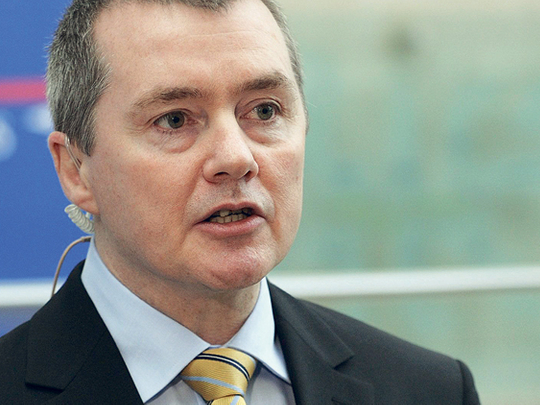
Dubai: UK’s decision to put Pakistan on the ‘red list’ before India came as a surprise, said Willie Walsh, International Air Transport Association’s (IATA) head.
“The thing that surprised me in relation to the UK was the decision to put Pakistan on the red list when they did and delayed putting India,” said Walsh, during a media briefing.
Walsh said that data from the UK “clearly” showed that there was a higher level of the variant of concern from India, “well in excess" of what was being seen from Pakistan.
“It goes to this challenge that we have, are governments genuinely being driven by the scientific data or is it…political risk,” said Walsh.
Travel shows improvement
Global air travel demand showed “marginal” improvement in May, compared to the prior month, said the International Air Transport Association (IATA) on Wednesday.
However, passenger traffic remained well below pre-pandemic levels, said IATA, adding that recovery in international traffic continued to be stymied by “extensive” government travel restrictions.
Total demand for air travel in May 2021 (measured in revenue passenger kilometers or RPKs) was down 62.7 per cent compared to May 2019. That was a gain over the 65.2 per cent decline recorded in April 2021 versus April 2019.
International passenger demand in May was 85.1 per cent below May 2019, a small step-up from the 87.2 per cent decline recorded in April 2021 versus two years ago. All regions with the exception of Asia-Pacific contributed to the improvement.
“We are starting to see positive developments, with some international markets opening to vaccinated travelers,” said Willie Walsh, IATA’s Director General.
“The Northern Hemisphere summer travel season is now fully arrived and it is disappointing that more governments are not moving more rapidly to use data to drive border opening strategies that would help revive tourism jobs and reunite families,” said Walsh.
Delta variant hits India
India’s domestic traffic fell 71 per cent in May compared to May 2019 amid the emergence of the new and more contagious ‘Delta’ variant. This compared to a 42 per cent decline registered in April versus the same month two years ago.
Brazil’s domestic traffic rebounded from a 60.9 per cent decline in April versus the same month in 2019, to a 44 per cent decline in May, as travel restrictions were eased.
Domestic improves
Total domestic demand was down 23.9 per cent versus pre-crisis levels, slightly improved over April 2021, when domestic traffic was down 25.5 per cent versus the 2019 period.
“China and Russia traffic continue to be in positive growth territory compared to pre-COVID-19 levels, while India and Japan saw significant deterioration amid new variants and outbreaks,” said IATA.
Meanwhile, for Middle East-based airlines, demand was down 81.3 per cent in May compared to May 2019. Passenger capacity declined 63.7 per cent, and load factor fell 35.3 percentage points to 37.7 per cent.
Cargo slows
Demand for cargo, measured in cargo tonne-kilometers (CTKs*), was up 9.4 per cent, compared to May 2019.
IATA said the pace of growth slowed slightly in May compared to April, which saw demand increase 11.3 per cent against pre-COVID-19 levels (April 2019).
“As economies unlock, we can expect a shift in consumption from goods to services - this could slow growth for cargo in general, but improved competitiveness compared to sea shipping should continue to make air cargo a bright spot for airlines,” said Walsh.








